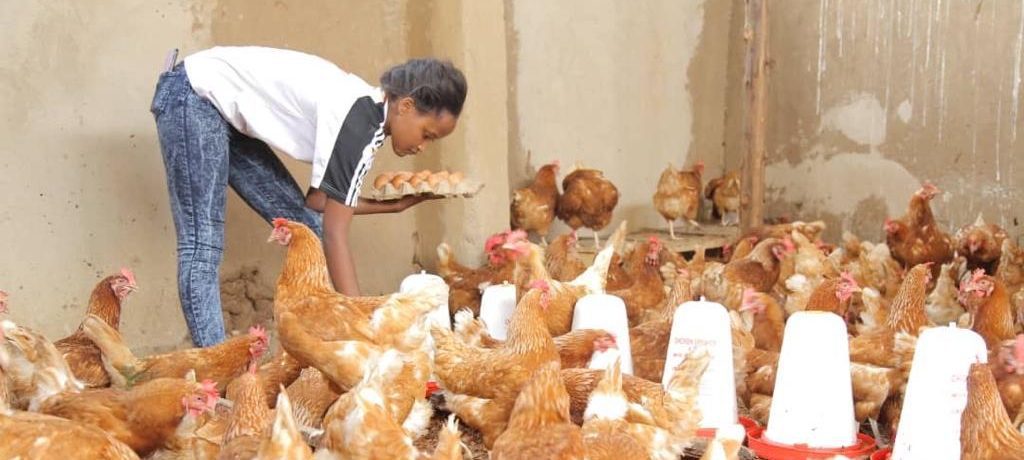- 이 주제는 비어 있습니다.
- 글쓴이글
- 4월 7, 2025 11:35 오전 #622983

Small-scale poultry farming has emerged as a powerful tool for empowering women and youth in rural communities around the world. As a low-cost and accessible form of agriculture, poultry farming provides opportunities for financial independence, skill development, and socio-economic mobility.
By tapping into the potential of small-scale poultry farming, women and youth can overcome barriers to employment, improve their livelihoods, and contribute to local economic growth.
Empowering these groups through poultry farming not only benefits individual families but also fosters community development and gender equality.
1. Financial Independence and Income Generation
Small-scale poultry farming offers women and youth a reliable source of income, helping to reduce poverty and improve financial independence. Poultry farming requires relatively low capital investment, making it accessible to those with limited resources.
By raising chickens for meat or egg production, individuals can generate a steady stream of income that can be used for household expenses, education, and healthcare.
For women, especially, poultry farming provides an opportunity to contribute financially to the household without having to leave home, enabling them to balance work and family responsibilities. Youth involved in poultry farming gain valuable entrepreneurial experience, setting them on a path toward self-sufficiency and financial stability.
2. Skill Development and Capacity Building
Small-scale poultry farming provides valuable training and skill development opportunities for women and youth. Through poultry farming, they can learn essential skills in animal husbandry, management, and business operations.
These skills can be transferred to other agricultural ventures or used to create sustainable businesses. Additionally, small-scale poultry farming introduces individuals to new technologies and farming practices, improving their ability to adapt to changing agricultural trends.
The development of technical skills in areas such as feed management, disease control, and biosecurity equips women and youth with the knowledge necessary to run successful poultry operations and become leaders in their communities.
3. Promoting Gender Equality and Women’s Empowerment
In many rural communities, women face significant barriers to economic participation due to cultural norms, lack of access to education, and limited employment opportunities. Small-scale poultry farming offers women a chance to overcome these barriers by providing a flexible and profitable means of income generation.
Poultry farming empowers women to take control of their financial futures and make decisions that impact their families and communities. The income generated from poultry farming can improve women’s social status, enabling them to invest in their children’s education, healthcare, and other necessities.
Moreover, involving women in poultry farming contributes to gender equality by promoting women’s economic and social independence.
4. Reducing Youth Unemployment and Promoting Entrepreneurship
Youth unemployment is a growing concern in many developing countries, particularly in rural areas where access to formal employment opportunities is limited. Small-scale poultry farming offers young people an avenue for entrepreneurial ventures that require minimal capital investment.
By starting their own poultry businesses, youth can become self-employed, create jobs for others, and contribute to local economies. Furthermore, small-scale poultry farming provides a platform for young people to gain practical experience in business management, marketing, and financial planning, skills that are transferable to other areas of the economy.
Empowering youth through poultry farming not only helps reduce unemployment but also nurtures the next generation of agricultural entrepreneurs.
5. Improving Nutrition and Food Security in Rural Communities
In addition to the economic benefits, small-scale poultry farming plays a significant role in improving nutrition and food security, particularly in rural communities.
By raising chickens for eggs and meat, women and youth can ensure a steady supply of protein-rich food for their families. This access to nutritious food helps improve overall health and well-being, particularly for children, who are most vulnerable to malnutrition.
Poultry farming also promotes food security by providing a sustainable source of income that can support local markets and improve the availability of affordable food in rural areas. As small-scale poultry farming grows, it can contribute to the resilience of communities, making them less reliant on external food sources and better able to withstand economic or environmental challenges.
In conclusion, small-scale poultry farming presents a unique opportunity for empowering women and youth in rural areas, offering them a pathway to financial independence, skill development, and improved livelihoods. By engaging in poultry farming, individuals gain the tools to succeed in business and become active contributors to their communities.
As women and youth gain economic and social empowerment, they also foster greater gender equality and reduce unemployment, creating a positive ripple effect that extends beyond individual families. Small-scale poultry farming, therefore, represents a sustainable and impactful solution for improving the lives of women and youth while promoting local economic development and food security.
Read Also: Scaling Poultry Production to Meet the Growing Urban Demand
- 글쓴이글
- 답변은 로그인 후 가능합니다.

